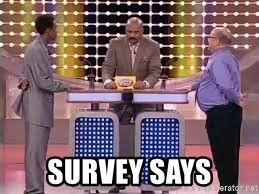I Asked My Network to Define 'Personal Brand.' Here's What They Said.
“Personal brand” gets thrown around a lot these days. There are courses on building your personal brand, articles about why you need a personal brand, and professional coaches dedicated to helping you craft your personal brand.
Question: Are we all agreed on what a personal brand is?
(Hint: No. No, we are not.)
How Do You Define ‘Personal Brand?’
I recently saw a writer on Twitter say he gets referrals because of his personality, his character, and the quality of his work, not because of any personal branding.
Personality, character, and quality of work coming together to make clients happy sounded to me like elements of a great personal brand. I thought I was using a standard definition. Apparently, I was not. Because there isn't one.
I’ve never taken a personal branding course, so I can’t say for sure what’s in them. I always assumed they don’t teach people how to create a brand so much as how to express one.
Branding tactics like messaging pillars, color schemes, and hashtags are all well and good, but they’re window dressing. Take away the yellow glasses and Seth Godin is still Seth Godin. If he had laser eye surgery tomorrow his followers would still know what to expect from him.
His brand isn’t about the glasses; it’s about how he shows up consistently.
I needed more information, so I asked my network how they define personal brand.

Jeremy Blubaugh was right there with me, agreeing that personality, character, and quality of work are “branding 101.”
To Marcus Schaller, “personal brand” is another way of saying “reputation.”
Matthew Fenton stepped up on Twitter to argue for the opposition. Based on his 25 years of working in branding, he said, he’s convinced that “people are not brands.”
“In practice, most personal branding advice focuses on appearances and reputation. And because these are driven by character, personal branding sometimes tries to claim that too,” he tweeted. “But if I want to improve my character, personal branding is about the last place I'd look.”
Matthew’s right; it doesn’t work in reverse. I can’t improve my character by building my brand. Character is internal. It’s who I truly am. Brand is external; it’s how other people perceive me. Whether we’re talking personal or corporate, brand building is a collaborative exercise between me and my audience.
Brand vs. Reputation
So what’s the difference between building a brand and building a reputation? Jon Michail says personal brand is something bigger – the lasting impact that reverberates long after you’re gone.
Pragya Mishra writes that creating a personal brand is a way of exerting control over your reputation; Sean Harry says a personal brand can’t be “created” at all.
And then there’s that famous Steve Jobs quote, “A brand is simply trust.”
“I believe that people overthink personal branding; like it's a project to tackle rather than something you earn over time,” Mark Evans commented on my LinkedIn post. “Do the right things, be generous with your time and advice, and share valuable insights, ideas, and thoughts.”
It’s been almost 25 years since the Fast Company article “The Brand Called You” introduced the concept of personal branding. And we still don’t have an industry-standard definition.
In my search for one, I uncovered a few standards that seem to crop up across the board:
Your personal brand is tied to your professional reputation,
Your audience co-creates your personal brand with you,
While reputation is organic, personal branding is deliberate.
It seems the biggest difference in definitions between reputation and brand is intention. If your reputation is what people think of you, your brand is how you present yourself to shape what people think of you. It’s a small but significant distinction.
While I continue my quest to define personal branding, I’d love to hear what it means to you. I’m especially keen to hear from those of you who teach personal branding or who have taken courses or workshops in “the brand called you.” Leave your comments below.

